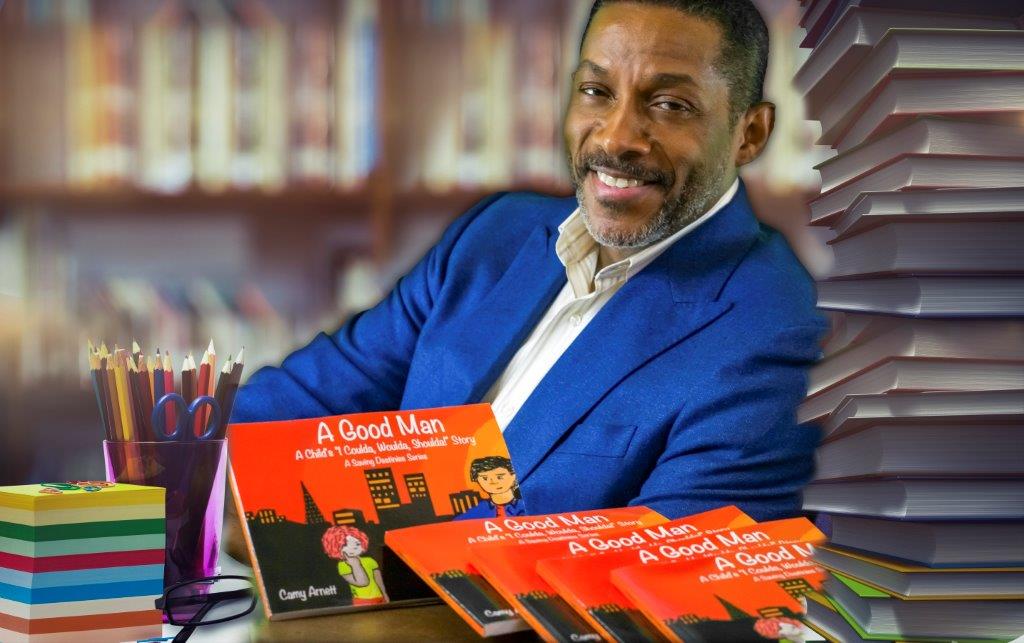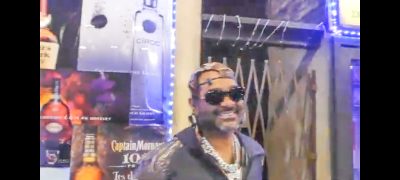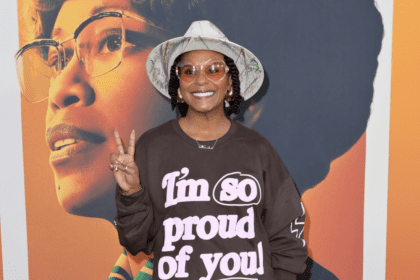
Mathew Knowles wants to be known for more than being Beyoncé’s dad.
The 63-year-old is best known for managing his world famous daughter’s career from the early 1990s until 2011. After selling over 118 million albums worldwide, Beyoncé is still known to have been launched to superstardom by her dedicated father.
Knowles additionally started the careers of Kelly Rowland and Michelle Williams, who were in the biggest R&B girl group in the world with Beyoncé, Destiny’s Child. He also managed the music career of his second oldest daughter, Solange.
But Knowles has been active in the music industry for over 20 years, so he boasts of a lengthy list of achievements outside of just his daughters and Destiny’s Child. He has founded several record labels, including Music World Entertainment, Music World Gospel, Music World Kids, and Music World Country/Compadre. Many chart-topping artists have been managed under Knowles, including rapper Nas and gospel group Trin-i-tee 5:7.
After all the tremendous success Knowles has garnered himself and helped others to reach, he has now laid out all of his secrets in a couple of new ventures. The first is his new book, The DNA of Achievers: 10 Traits of Highly Successful Professionals, which gives readers insight into how those highly accomplished in their field became powerful in their respective industry. He is also conducting educational seminars around the world, The Entertainment Industry: How do I Get In?, in which he breaks down how to play the industry game.
Knowles stopped by the rolling out office to chat and he let us in on why he wants his successes outside of Beyoncé to be acknowledged, his new book, his entertainment workshops, and more about his daughters’ infamous elevator incident.
You’re having an entertainment workshop in Atlanta pretty soon, right?
Yes, I’m really excited about it. It’s called The Entertainment Industry: How Do I Get In? A lot of artists, producers, songwriters, dancers, and hairdressers want to get into the industry. So, this is an all-day seminar. We’re doing it at Georgia State University on Jan. 30, 2016 from 10 a.m. to 5 p.m. You can go to Eventbright.com. We have an early bird special, so get your tickets right now.
How often do you have workshops?
Right now, we have eight scheduled for next year, and we’re looking to do a possible 20 next year, and not just in the U.S., but around the world. Because everybody wants to know, “How do I get in?” And folks don’t know where to start, or they’ve been doing this for a long time and have gotten nowhere in an industry that’s very specific, and you have to do specific things to get in. And that’s what I share.
Will there be a panel of experts?
Yes, there will be a panel of experts, someone that’s an entertainer attorney, someone that’s a guru in social media. And we’ll have a number of other people on the panel that will share their knowledge. You’ll get an opportunity to ask questions. This is a real experience. I want folks to feel like they’re at Broadway and Harvard at the same time.
Your book, The DNA of Achievers: 10 Traits of Highly Successful Professionals, how are people receiving that?
The book, fortunately, was number one in two categories: self-help as well as music business. So, this is not just a music book; this is a self-help entrepreneurial book, as well, To have a bestseller in pre-sales and to probably say that I have a number one bestseller, I’m very proud of that and thankful for the support that people have given me.
So it’s not just about the music industry, but you do talk about things that people who want to be successful in the industry need to do, correct?
Well, the book talks about my experiences, and my personal experiences are very varied. I was in corporate America for 20 years, worked at Xerox for 10. [I] was one of the first African Americans to sell MRI and CT scanners in America; one of the first African Americans to be a neurosurgical specialist; started a hair salon with my former wife, and in 1984, we made our first $1 million as entrepreneurs. Then we started House of Deréon and Miss Tina by Tina Knowles and built that brand from zero and sold it for well over $60 million. So, the book talks about all of those aspects of corporate America, entrepreneurship, and obviously my 20 years in the music business. And it talks about failure. One of the chapters is learning from failure. Failure and mistakes are an opportunity to grow in our life, not a reason to quit. We often quit just before success is about to happen.
What other important tips do you talk about in the book?
The most important think in life is living your passion. What is it that excites you and that when you do it, you get so much joy from it? We do not just [do] what our determination is. People get determination and passion confused. I talk in my book about the difference. When I was in college, I used to work at Goodyear curing flaps, and every time that oven would opened at 700 degree … I did my job, I did it well. I was determined to do my job well. Was I excited every day? H— no, not at all. And some people confuse determination with what they’re passionate about. My passion is to educate and motivate in two areas: entrepreneurship and entertainment. And I’ve done that all my life.
That reminds me of when I was watching you in another interview, and the interviewers were comparing Beyoncé and Solange and questioning why Solange isn’t as successful, and you said, “Who is to say that Solange isn’t successful? Because her success is getting up and doing what she loves.”
Absolutely, and she made it very clear early on in her life that she was gonna do that, and she dared to be different.
One thing that Beyoncé is great at is keeping her private life out of the public. It seems that she only shows so much. Is that type of media training something she learned from you?
I developed what I call a media training boot camp, and in that artist development, media training is absolutely a part of it — to be able to articulate to the media and to also get your point of interest across to the media.
And you know, we focus on Beyoncé a lot, but what we don’t focus on is that Earth, Wind & Fire’s last album was made with me, or The O’Jays’ Imagination was made with me, or the fact that I have Compadre Records — that’s a country label. And Music World Gospel. We talk about Destiny’s Child being the number one girl group of all time in R&B, but what we don’t talk about is Trin-i-tee 5:7 being a number one trio in the history of gospel music. People don’t talk about Nas. Back in the early 90s when I managed Nas, [he released] the only number one album he got on Billboard. This is not just a Beyoncé thing.
Outside of your daughters career and Destiny’s Child, what would you say is your proudest accomplishment in your career when it comes to the music industry?
Probably the gospel label [and] Le’Andria Johnson winning a Grammy and being a really intricate part of that.
Within the past couple years, there’s been some controversy on the Internet and blogs about your life. How do you deal with that?
Let’s look at the demographics of who’s on blogs. Would you agree with me that the majority of that would be between 16 and 26? What 63-year-old do you know that’s really in tune with or cares about what a 16 year old says about them? That is so not realistic. That’s their world and they’re enjoying themselves having fun on social media, and in entertainment, we use that very smartly to generate sales for us. I don’t get upset or angry about any of that because it doesn’t affect me.
Do you have any new artists you’re developing?
I do. They’re called Blushhh Music, which is three ladies, early 20s, two rappers and a vocalist, which hasn’t been done before in a trio. We’ve been in artist development for a year now. [We’ve] almost completed the album. We’ll launch the single, maybe two, in January with videos. Think Destiny’s Child meets TLC, meets Salt-N-Pepa. That’s what this group represents to me.
Sometimes when people have asked you about things like the elevator incident and things like that, you have said it’s a “Jedi mind trick.” Can you elaborate on that?
I’ll just leave it at this. There was once a time when journalism was held in the highest esteem and people were concerned about getting it right. If you go and just look at my name Mathew, it’s misspelled probably 75 percent of the time. There’s only one “t” in Mathew. My point is, not so much the name, but the fact that we don’t have a journalistic approach. The blogs have taken out the journalistic approach, so what we’re doing today is selling advertising and we’re getting numbers. So, blogs and even the local news often is not real. It’s not factual. So, we give people false air sometimes to get numbers, and I call that a Jedi mind trick. It’s about search engine optimization.
A lot of people … their intellect is from their emotion. True intellectuals have no emotional when it comes to facts — it’s either real or not real. And Jedi mind trick is when you mix the two, and there’s a lot of media and folks in marketing who know how to hit the button on you to hit both of those at the same time. And that’s all Professor Knowles is going to say about that.
Visit dnaofachievers.com to get a signed copy of The DNA of Achievers: 10 Traits of Highly Successful Professionals.
To purchase tickets to The Entertainment Industry: How Do I Get In?, visit eventbrite.com.















